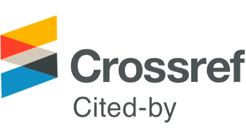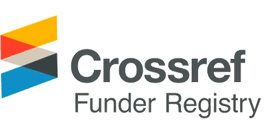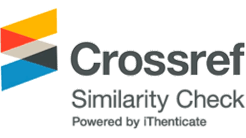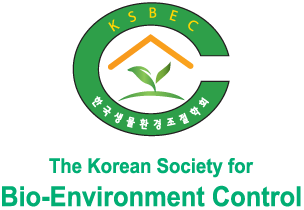Publishing Policies
Ethical Guidelines for Journal Publication
The date of enactment: 2007. 10. 26.
1. Introduction
For the publication of an article in a peer-reviewed journal, it is crucial to agree upon standards of expected ethical behaviour for all publishing parties: Editors, Authors, and Peer reviewers. For the policies on the research and publication ethics not stated in this instructions, International standards for editors and authors (http://publicationethics.org/international-standards-editors-and-authors) can be applied.
2. Code of research ethics
2.1 Duties of Authors
2.1.1 Originality and plagiarism: The authors must write original works entirely, and if the work and/ or words of others are used, they must be appropriately cited or quoted. Plagiarism in all, from claiming another’s original ideas or methods or results as the author’s own to copying or paraphrasing substantial parts of another’s paper without attribution constitutes unethical publishing behavior and is unacceptable by any means. Claiming the author’s own previous works without appropriate citation is also a type of plagiarism that must not be allowed.
2.1.2 Authorship of the paper: Authorship must be limited to those who have made a significant contribution to the work. All those who have made significant contributions must be listed as co\-authors. The order of authorship should be determined based on the significance of the authors. Where there are others who have participated in certain substantive aspects of the research project, they should be acknowledged or listed as contributors.
2.1.3 Multiple, redundant or concurrent publication: An author must not publish manuscripts describing essentially the same research in more than on journal or primary publication. An author must not submit a previously published paper for consideration to another domestic or international journal. If authors intend to use previously published materials in the new publication, they should provide them for the editor and consult whether it is acceptable or not, If acceptable, the primary reference must be cited in the secondary publication.
2.1.4 Acknowledgement of sources: Proper acknowledgment of the work of others must always be given. Authors should cite publications that have been influential in determining the nature of the reported work. Information obtained privately, as in conversation, correspondence, or discussion with third parties, must not be used or reported without explicit, written permission from the source.
2.1.5 Modification of paper: An author must try to accept comments of editors and peer reviewers and apply to paper. If an author has different opinion to editors and peer reviewers, an author should report the reason of disagree to editors.
2.2 Duties of editors
2.2.1 Publication decisions: The editor is responsible for deciding which of the articles submitted to the journal should be published, while respecting authors’ personality, confidentiality, and independence.
2.2.2 Fairness: An editor should evaluate manuscripts solely based on quality and compliance to submission guidelines without regard to gender, age, institution, religious belief, and other prejudices or personal intimacy.
2.2.3 Objective: The editor must assign manuscripts to experts of knowledge and fair judgement in close relation to the subject area. Any person with personal intimacy or hostility to the authors must be excluded from the review process.
2.2.4 Confidentiality: The editor and any editorial member must not disclose any information about a submitted manuscript and author to anyone other than reviewers as appropriate until the publication decision is made.
2.3 Duties of peer reviewers
2.3.1 Responsibility: Peer review assists the editor in making editorial decisions and through the editorial communications with the author may also assist the author in improving the paper. Any selected referee who feels unqualified to review the research manuscript or knows that its prompt review will be impossible should notify the editor and excuse himself from the review process.
2.3.2 Objectivity: Reviews should be conducted objectively based on the reviewer’s academic experience and expertise. Personal criticism of the author is inappropriate. Referees should express their views or recommendations for revision clearly with supporting arguments.
2.3.3 Confidentiality: Any manuscripts received for review must be treated as confidential documents. They must not be shown to or discussed with others except as authorized by the editor. The content reviewed must not be referred to before the publication process is completed unless the author authorized so.
3. Action about the research misconduct
3.1 Report of violate the code of ethics: When the members recognize that the data of their paper is misused or falsely presented, they need to report this to the ethics committee to be taken an action. The ethics committee should not disclose the identity of the external members for reporting problems with the public.
3.2 Formation of ethics committee: The ethics committee should consist of 1 chairman and ant least 4 of committee members who have been appointed by chairman on the recommendation of the board of directors.
3.3 Authority of ethics committee: The ethics committee shall decide the disciplinary action and its level and then report this decision to the chairman. The chairman shall make the final decision and appropriately announce and execute it.
3.4 Investigation of ethics committee: An member should cooperate in the work carried out in the ethics committee.
3.5 Guarantee of hearing: The ethics committee should provide an opportunity to summit or state an opinion to the examinee about misconduct and offers an opportunity to make correction if the misconduct occurred by mistake without intentionality.
3.6 Confidentiality: The ethics committee should not be made public until the final determination of the status of the members under investigation by unethical act.
3.7 Disciplinary procedures: When recognizing the member’s unethical act or receiving the complaint, chairman should organize the board of directors and investigate the actuality.


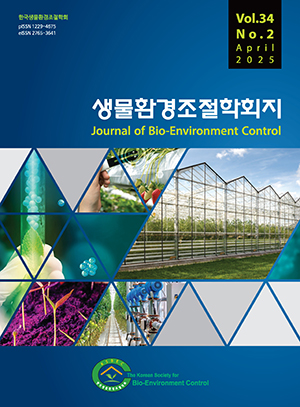 Journal of Bio-Environment Control
Journal of Bio-Environment Control



